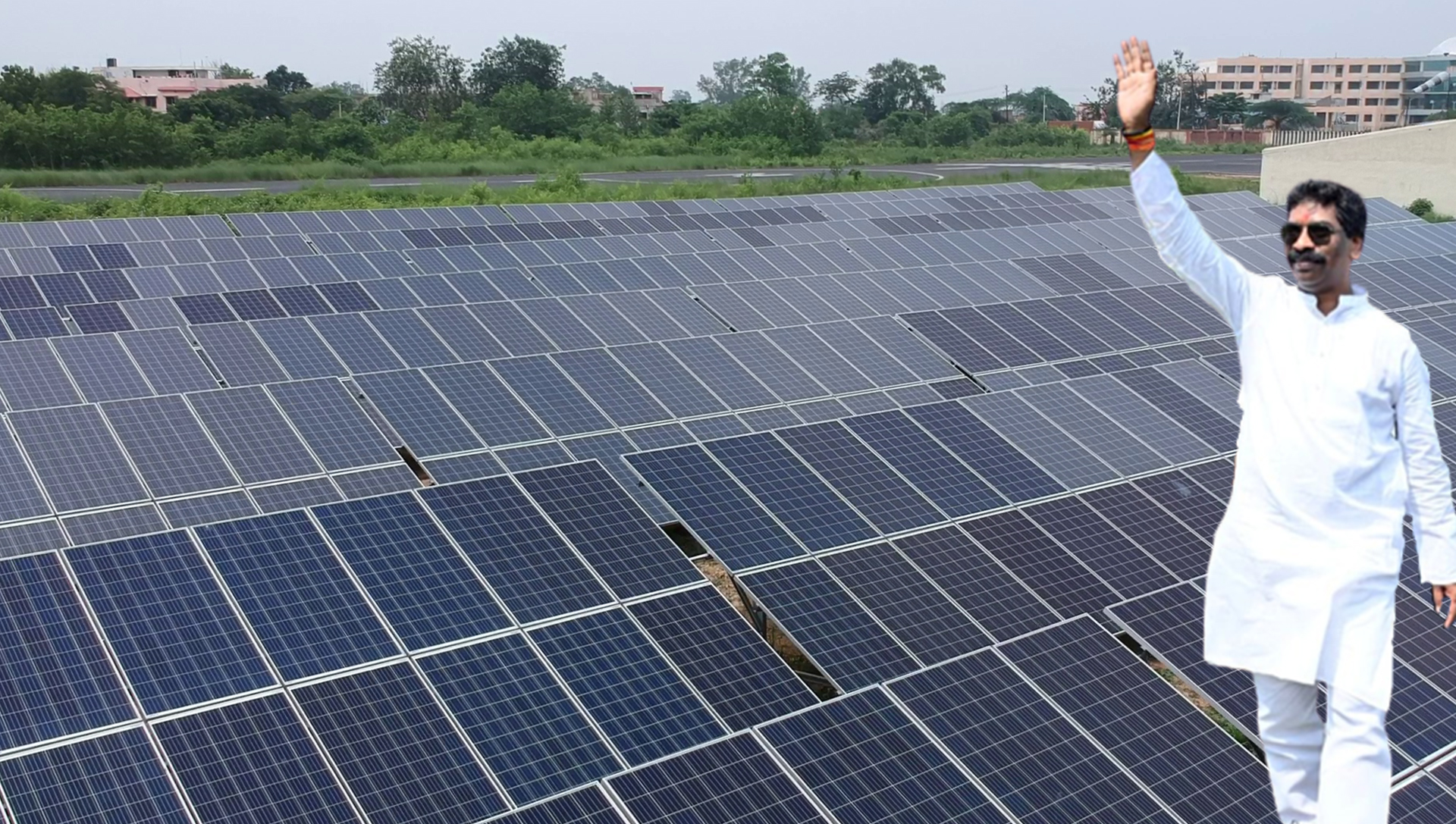RANCHI: In a bid that could boost the electricity generation in the mineral-rich state, the Hemant Soren-led Jharkhand government unveiled a new solar policy that aims at increasing clean energy capacity up to 4,000 megawatts in the next five years.
Unveiled by Chief Minister Soren, the Solar Energy Policy 2022 will help the state transition toward clean energy while hopes to make it self-sufficient in near future.
The government also plans to give a subsidy of up to 80 per cent of the total installation cost to people having an annual income of less than Rs 3 lakhs to encourage families to use rooftop solar panels in the cities.
The new policy also aims to encourage private investors by conceptualising a single-window system, payment security mechanisms and land arrangements through land banks. Under the policy steps such as a dedicated solar power cell, statutory approval within a maximum of 60 days, setting up of 1000 solar villages, schemes to encourage economically backward villagers, and cross-subsidy will be implemented to encourage the adoption of solar energy.
Further, a proposal has been made for exemption from a third party and captive use, indexation up to 25 years at the rate of 1 per cent and exemption in the electricity bill. The policy also guarantees 100 per cent exemption of State Goods and Services Tax for the next five years.
Jharkhand government will also constitute two high-level committees for the monitoring of the work as per the set targets.
Meanwhile, in another major decision that should benefit the farmers in the state, the Jharkhand government also plans to inaugurate a web portal under the Kisan Solar Water Pumpset Scheme.
The move is aimed to simplify the process of distribution and installation of solar pumps for farmers. The portal will also aid in providing for the maintenance of the pumps for the next five years. These processes will be made transparent through efficient and regular data collection, analysis and online monitoring. Further, the farmers will be able to track the status of their online application for the solar pump sets.
The state gives an impressive 96 per cent subsidy to the farmers for off-grid pump sets. So far in the first phase, 6717 solar pump sets have been installed in the entire state, out of which 6500 solar pump sets have been installed across the state from 2020 to 2022. Jharkhand ranks fifth across the entire country in installing solar pump sets. In the second phase, the state government has an ambitious target of installing 10,000 solar pump sets.









